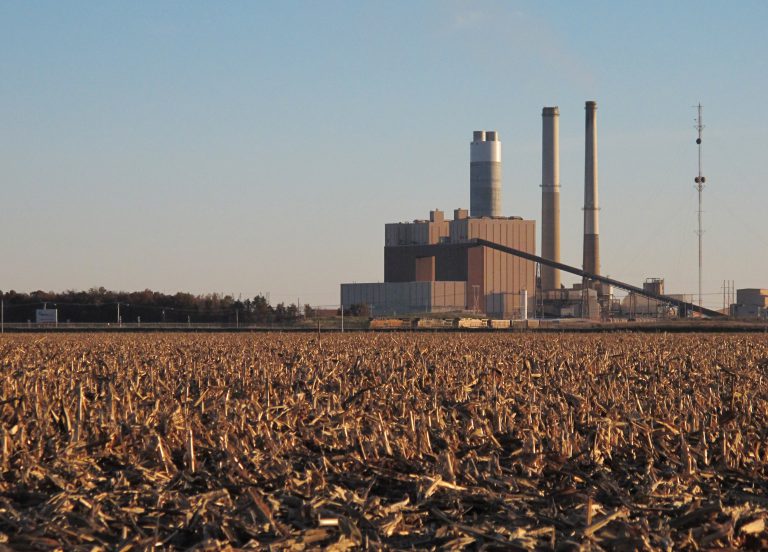CHAMPAIGN – Texas-based company Vistra Energy announced it would close its remaining coal-fired power plants in Illinois within the next decade, taking a step toward clean energy. The plants scheduled to be shut down include Joppa Steam, Kincaid, Baldwin and Newton.
The latest closures follow previous coal plant shutdowns in Illinois in recent years—including in Canton, Havana, Hennepin and Coffeen in 2019—as part of a changing energy sector that is now leaning more toward natural gas and renewable energy.
It’s also a move that will lessen air pollution and lower carbon emissions. Vistra coal plants in Illinois contributed to half of carbon dioxide and sulfur dioxide emissions among state power plants last year.
“Vistra’s commitment to our transformation to a low-to-no-carbon future is unequivocal and offers unique opportunities for growth and innovation,” Vistra president and CEO Curt Morgan said in a statement. “Vistra is paving its way for a sustainable future—economically and environmentally.”
But challenges remain when it comes to redeveloping the sites. Companies aren’t always required to remediate or clean up coal-fired power plants for surrounding communities after they’re shut down. And despite plant closures, coal ash pollution often remains on site, leading to groundwater contamination.
Environmental groups say one way to deal with abandoned coal plants is to redevelop them into spaces for clean energy.
“Vistra’s now saying they might redevelop some of the sites into solar or battery storage, so that might lead into a different course of events that we’ve been seeing with sites where they sat there for almost a decade now,” says Amanda Pankau with environmental advocacy group Prairie Rivers Network.
But Pankau says there are still many unknowns, as Vistra has yet to make any concrete plans to redevelop the sites.
One issue that remains is coal ash pollution—a mix of heavy metals including arsenic, cadmium and mercury—which can seep from old coal plants for decades. There are currently 73 coal ash sites identified by the Illinois Environmental Protection Agency (IEPA) that require clean-up, and many are located near lakes or rivers.
Currently, the Illinois EPA is proposing new rules to regulate coal ash pollution under the Coal Ash Pollution Prevent Act passed last year.
Another concern, especially in downstate Illinois, is how to aid communities that have been economically reliant on coal-fired power plants for decades. In Joppa, Ill., Vistra’s power plant employs more than 100 people, and news of the coal plant’s closure left locals feeling concerned about the economic impact.
To help with the transition away from fossil fuels, some environmental groups are pushing for something known as just transition policies—or ways to replace lost jobs and tax revenue.
“We recognize how hard this is, and how significant it is for a community to lose this sort of asset,” says Andrew Rehn with Prairie Rivers Network. “So we recognize there’s a real importance that we get something to support them, and also to make sure that there aren’t any environmental liabilities left behind like the coal ash.”
Rehn says that the proposed Clean Energy Jobs Act, or CEJA, includes assistance for coal communities and workers. Some of the proposed policies include establishing coal communities as clean energy empowerment zones and providing tax-based replacement for up to five years.

